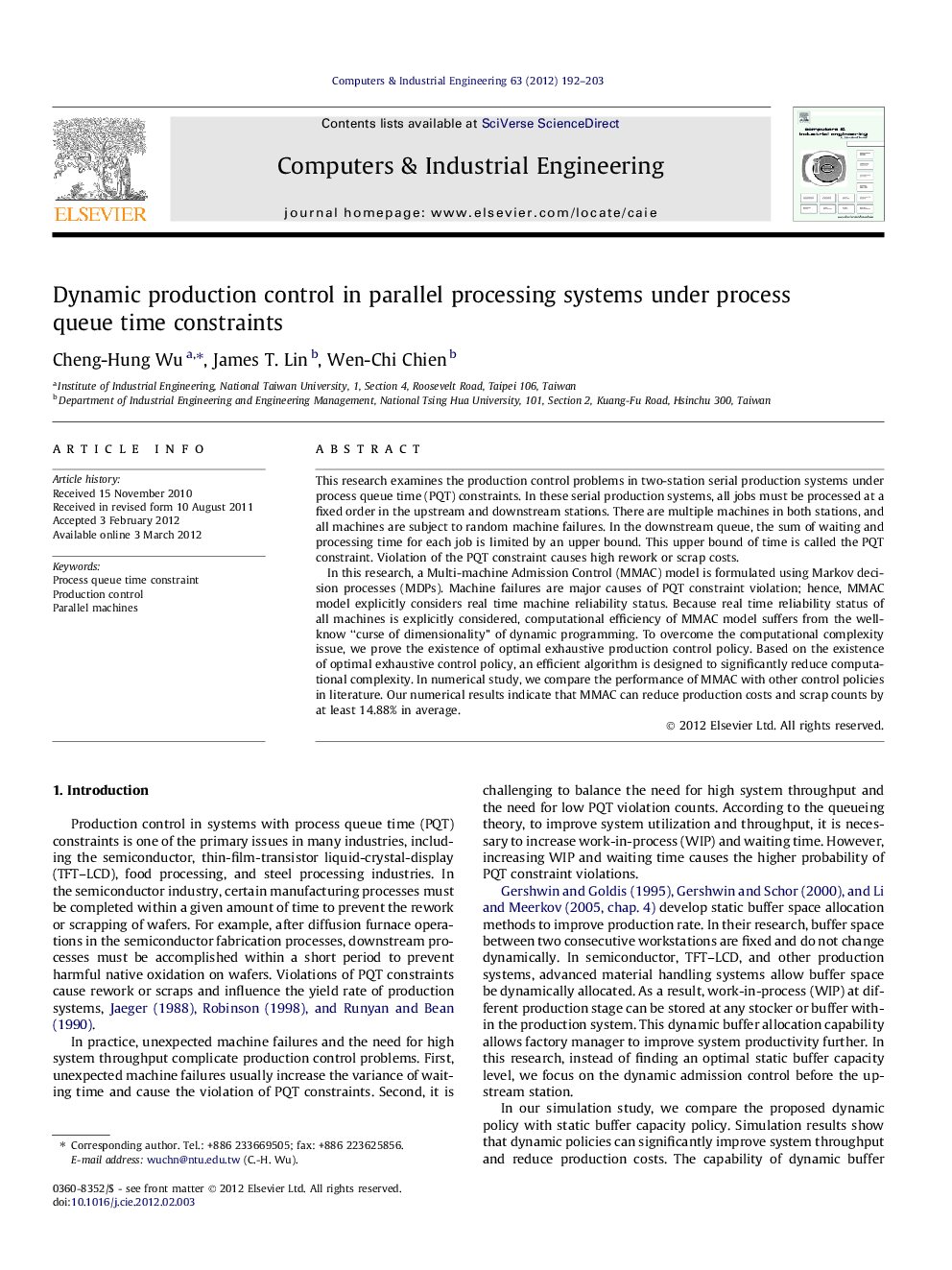| کد مقاله | کد نشریه | سال انتشار | مقاله انگلیسی | نسخه تمام متن |
|---|---|---|---|---|
| 1134990 | 956084 | 2012 | 12 صفحه PDF | دانلود رایگان |

This research examines the production control problems in two-station serial production systems under process queue time (PQT) constraints. In these serial production systems, all jobs must be processed at a fixed order in the upstream and downstream stations. There are multiple machines in both stations, and all machines are subject to random machine failures. In the downstream queue, the sum of waiting and processing time for each job is limited by an upper bound. This upper bound of time is called the PQT constraint. Violation of the PQT constraint causes high rework or scrap costs.In this research, a Multi-machine Admission Control (MMAC) model is formulated using Markov decision processes (MDPs). Machine failures are major causes of PQT constraint violation; hence, MMAC model explicitly considers real time machine reliability status. Because real time reliability status of all machines is explicitly considered, computational efficiency of MMAC model suffers from the well-know “curse of dimensionality” of dynamic programming. To overcome the computational complexity issue, we prove the existence of optimal exhaustive production control policy. Based on the existence of optimal exhaustive control policy, an efficient algorithm is designed to significantly reduce computational complexity. In numerical study, we compare the performance of MMAC with other control policies in literature. Our numerical results indicate that MMAC can reduce production costs and scrap counts by at least 14.88% in average.
► We use dynamic programming to model control problems under queue time constraints.
► We prove the existence of optimal exhaustive control policies.
► An algorithm is developed to solve the dynamic programming model efficiently.
► The proposed algorithm significantly reduces production costs and scrap counts.
Journal: Computers & Industrial Engineering - Volume 63, Issue 1, August 2012, Pages 192–203